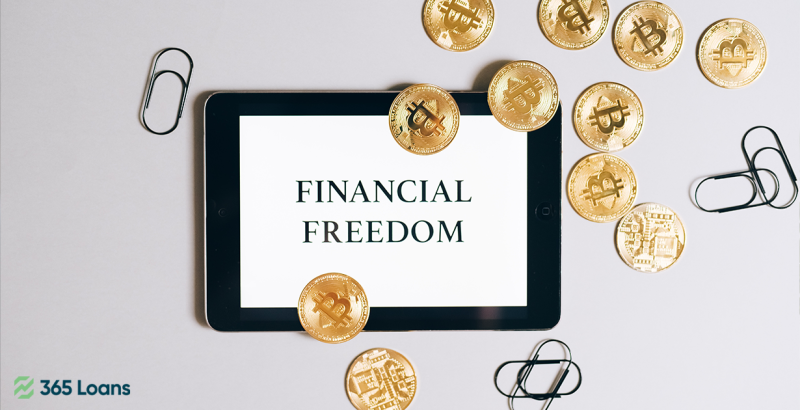Imagine a scenario where you can confidently borrow money when needed, knowing that it contributes to your long-term financial stability. This is the delicate balance we strive to achieve between financial freedom and responsible borrowing as it can equally be challenging. However, it’s a journey worth embarking on, as it lays the foundation for a secure and prosperous financial future. In this article, we’ll explore the significance of financial freedom and responsible borrowing, uncover the potential dangers of irresponsible borrowing, and discover the key to unlocking financial freedom while treading the path of responsible borrowing.
Understanding Financial Freedom
Financial freedom represents a state of independence and security, where individuals have the ability to make choices without being constrained by financial limitations. Key components of financial freedom include being debt-free, having an emergency fund, generating passive income, pursuing life goals, and ensuring long-term financial security through retirement planning. Achieving financial freedom requires discipline, financial literacy, and a focus on long-term financial well-being. It provides individuals with the freedom to live life on their own terms and pursue fulfillment.
It also entails embracing a mindset of financial empowerment. It involves taking ownership of one’s financial situation and actively seeking opportunities to improve it. This may include acquiring new skills, exploring entrepreneurial ventures, or seeking investment opportunities. By continuously learning and adapting to changing economic landscapes, individuals can expand their financial knowledge and create opportunities for greater financial freedom and flexibility.
Responsible Borrowing: The Key to Financial Stability
Responsible borrowing is essential for maintaining financial stability and avoiding pitfalls. It involves distinguishing between needs and wants, assessing borrowing capacity, and comparing loan options to secure favorable terms. Responsible borrowers budget for repayment, read and understand loan terms, and regularly monitor their borrowing arrangements. By practicing responsible borrowing, individuals can build and maintain good credit, avoid excessive debt, and make informed financial decisions. This fosters long-term financial stability, empowers individuals to seize opportunities, and sets the stage for a secure financial future.
It also fosters a mindset of financial discipline and accountability. It encourages individuals to evaluate the potential risks and benefits of borrowing, make thoughtful decisions based on their long-term financial goals, and resist the temptation of excessive borrowing or living beyond their means. By exercising restraint and only borrowing when necessary and affordable, individuals can maintain control over their financial well-being and reduce the likelihood of falling into a cycle of debt. Responsible borrowing serves as a cornerstone of financial stability, providing a solid foundation for individuals to navigate their financial journey with confidence and resilience.
Strategies for Balancing Financial Freedom and Responsible Borrowing
Finding the right balance between financial freedom and responsible borrowing requires thoughtful planning and disciplined execution. Here are some strategies to help individuals navigate this delicate equilibrium:
- Assessing Personal Financial Situation: Begin by evaluating your current financial standing, including income, expenses, assets, and liabilities. This assessment provides a clear picture of your financial health and acts as a foundation for effective decision-making.
- Setting Financial Goals: Establish specific, measurable, attainable, relevant, and time-bound (SMART) financial goals. Determine what you want to achieve in terms of financial freedom and outline the steps needed to reach those goals.
- Creating a Budget and Sticking to It: Develop a comprehensive budget that outlines income, expenses, and savings targets. A budget helps control spending, track progress, and identify areas where adjustments can be made to align with financial goals.
- Exploring Alternative Financing Options: Consider alternative sources of funding, such as grants, scholarships, or crowdfunding, to reduce reliance on borrowing. These options can alleviate financial strain and minimize the need for loans.
- Educating Oneself on Financial Literacy: Enhance your financial literacy by educating yourself on personal finance topics. Understand the fundamentals of borrowing, interest rates, credit scores, and debt management. This knowledge empowers individuals to make informed decisions and avoid common pitfalls.
Challenges in Balancing Financial Freedom and Responsible Borrowing
Achieving a balance between financial freedom and responsible borrowing is no easy task. There are several challenges that individuals face along the way, which can make it difficult to strike the right equilibrium. Let’s explore some of these challenges:
- Temptation to Overspend: When experiencing a sense of financial freedom, individuals may be tempted to indulge in unnecessary purchases or live beyond their means, leading to overspending and accumulating debt.
- Peer Pressure and Societal Expectations: Society often creates pressure to conform to certain lifestyle standards, such as buying luxury items or living in upscale neighborhoods. This can lead to increased borrowing and financial strain as individuals try to keep up with others.
- Lack of Financial Education: Limited knowledge about managing finances, including budgeting, interest rates, credit scores, and debt management, can make it difficult for individuals to make informed decisions about responsible borrowing.
- Impulsive Spending Habits: Impulse purchases and reckless spending can disrupt the balance between financial freedom and responsible borrowing. Giving in to immediate desires without considering the long-term consequences can lead to unnecessary debt.
- Lack of Self-Discipline: Maintaining self-discipline is crucial for responsible borrowing and financial freedom. Without discipline, individuals may deviate from their financial goals and make impulsive borrowing decisions.
- Economic Uncertainty: Economic downturns, job losses, or unexpected financial emergencies can make it challenging to maintain financial stability and responsible borrowing.
- Balancing Short-Term Needs with Long-Term Goals: This can be a struggle as individuals may find it challenging to allocate resources towards savings, investments, or debt reduction while fulfilling short-term obligations.

How to Overcome Some Challenges and Pitfalls
In the journey toward financial freedom and responsible borrowing, individuals may encounter various challenges along the way, as we mentioned above. It is important to recognize and address these obstacles proactively to stay on track toward achieving financial goals.
- To overcome excessive debt and financial distress, assess your debts honestly. Prioritize high-interest debts and consider debt consolidation options. Seek guidance from credit counselors or financial advisors.
- Address impulsive spending and lack of budgeting by creating a realistic budget, tracking expenses, and practicing mindful spending. Use budgeting tools and apps for accountability.
- Overcome insufficient emergency funds by consistently saving a portion of your income. Automate savings through direct deposits and explore additional income sources.
- Improve financial education by attending workshops, reading reputable financial resources, and utilizing online platforms and apps for interactive materials.
Conclusion
In conclusion, Balancing financial freedom and responsible borrowing requires careful planning, self-discipline, and financial literacy. While challenges may arise, the journey towards financial balance is attainable with determination and continuous learning. By finding the right path, individuals can achieve financial well-being and enjoy the rewards of both freedom and responsibility.







